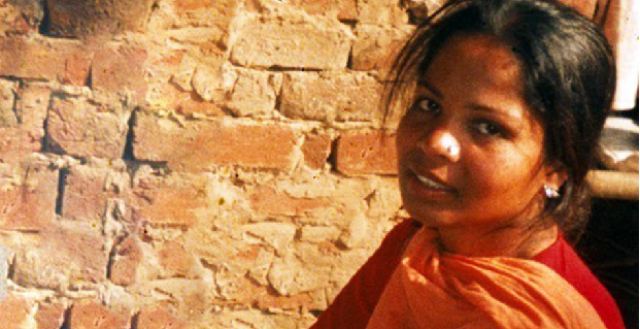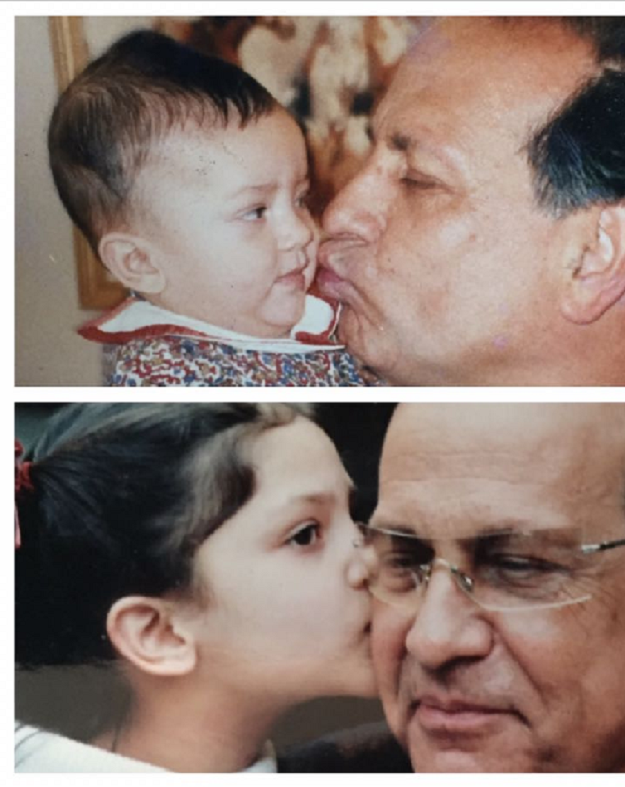Eclipsing the plight of blasphemy: Aasia Bibi campaign sees light
Salman Taseer's grand daughter ventures out to assist Aasia Bibi's family through the campaign

Aasia Bibi. PHOTO: YouTube
What followed later was the accusation of blasphemy by a neighbour and later the implicated 47-year-old was beaten up, tortured and publicly agonised and later found guilty of the crime which awarded her the death sentence by the Lahore High Court.
"Under Pakistan’s archaic blasphemy laws, insulting Islam is a crime punishable by death", Meera Shoaib, the granddaughter of Salmaan Taseer shared her views on the subject which has shook her family to the core.
Lawmakers call for 'review' of blasphemy law
Meera initiated the project of assisting the bereaved family of Aasia Bibi who awaits her hanging in a jail in Multan. According to her, eight years after the incident, Aasia's family is grasping at straws to sustain themselves. The stigma of being attached with a 'blasphemer' has taken a toll on the lives of the kin as the society refuses to hire her husband, Ashiq Masih.
"They [Aasia's daughters] can't settle down or study, it's not a normal life for them," Ashiq told BBC in an interview in 2015. The family receives death threats on a regular basis and it is next to impossible to imagine a life where they can walk without having persistent jitters for what is to come next.
Through crowdfunding, Meera, daughter of Sara Taseer, has managed to buy the family a rickshaw. Over the course of three months, they managed to accumulate around $3,417 and successfully arranged for the family's new way of sustenance. In a recent post shared on the official Facebook page of the campaign, there's a picture of the family which elucidates what they have been going through and how they are constantly on the run and cannot settle anywhere.
"They [the family] were attempting to sustain themselves by living off of Aasia's son-in-law, who rented and drove a rickshaw. However, a large percentage of his already scant daily earnings were sucked into paying the lease for the rickshaw. This funding effort has so far amassed enough money to pay for Aasia's family's very own rickshaw (around Rs200,000)," Meera shared.
The next goal of this campaign is to raise the money to purchase another rickshaw for the family, so they can lease it out themselves and set them on a path towards self-sustaining. This kind of mobile business, especially due to their unstable living situation, is really the key to long-term support of the family (rather than simply handing them a finite sum of money), Meera added.
For Meera, this campaign is close to her heart for distinct reasons. Being the first grandchild, she shared an unparalleled relationship with her grandfather. The late Governor of Punjab Salmaan Taseer was gunned down in broad daylight in Islamabad in 2011 by his own security guard, Mumtaz Qadri, for championing the pardon of Aasia. He condemned the prejudiced law saying, "The blasphemy law is not a God-made law. It’s a man-made law. It was made by General Zia-ul-Haq and the portion about giving a death sentence was put in by Nawaz Sharif. So it’s a law which gives an excuse to extremists and reactionaries to target weak people and minorities."
 Salman Taseer with grand daughter Meera PHOTO: SARATASEER
Salman Taseer with grand daughter Meera PHOTO: SARATASEERTalking to The Express Tribune, Meera said this campaign allowed self sufficiency, self employment, flexible timing and location. It further allows for anonymity when required. The campaign also intends to extend to other persecuted minorities.
Sara Taseer expressed her gratitude to the people all across the world who pitched in as less as $5 just to contribute towards the cause which solidifies the grounds for providing legal representation and sustenance to the family.
Mob attacks man in Chitral for 'blasphemy'
When asked of her opinion over what the fate of these draconian laws will eventually turn out to be, Meera said, "Free media, awareness, debate and steps like my grandfather Salmaan Taseer took will change mindsets over time. Nothing happens overnight. When my grandfather was assassinated nobody even spoke up. Six years on, a lot has changed including open debate forums. It's not only about these blasphemy laws, but the general treatment of minorities within Pakistan. It's important to have tolerance and respect and equal rights for all citizens of Pakistan. As my grandfather said, 'A society is judged by how it treats the weakest among it. It's not about the strong people you can lean on but how you support the weakest among you that matters'."
Politicians, lawyers, judges alike have faced massive backlash for vociferating against the draconian law that haunts the civilians. In 2014 only, around 475 cases of blasphemy were reported according to the statistics provided by the Human Rights Commission of Pakistan.
Meera said the significance of this fundraiser being launched on an online, public platform was that the problems that led to the situation of Aasia and her family still plagued Pakistan and that reiterated her stance.
"Blasphemy laws are still alive and are consistently used to target minorities, while opponents of the law are ostracised or murdered," she added.



















COMMENTS
Comments are moderated and generally will be posted if they are on-topic and not abusive.
For more information, please see our Comments FAQ